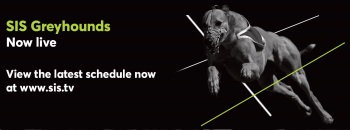
Michael Watts MRCVS
“Happy Holiday” the Politically Correct brigade want us to say now I’m told. Call me old fashioned if you like, but I am sticking with the traditional “Happy Christmas” in mid-December as long as the mincing metrosexuals will allow it, while making my contribution to multiculturalism by reeling off blessings and benedictions for Diwali, Ede, Hanukkah and so forth at the appropriate season.. “Happy Holiday” grates particularly when you have to work all through Christmas.
Self-employment has its moments. You can work when you feel like it, and head down the pub when you don’t, although this approach is not exactly conducive to success in business nor will it endear you to ‘Er Indoors. Your average wage slave gets to go home on a Friday evening and forget about having to earn a crust until Monday morning, while the poor deluded self-employed exercise their freedom to work all the hours that the Good Lord sends.
To be fair they don’t have to take a lot of grief from the suits in the front office, but it doesn’t generally take them too long to figure out that they are working for an even harder taskmaster. Of course when you work for yourself all the money you make is your own. After Her Majesty has taken her cut of course, and the mortgage has been paid, the utility bills sorted and an ageing motor kept on the road. What is left is all yours. Don’t spend it all in the one shop, as they say back home.
If truth be told, of course, nobody wants to read about somebody better off than themselves grumbling about the hardness of their life. It doesn’t exactly sell papers. Cutting to the chase, the reason I found myself working over the Christmas while others threatened their waistlines with groaning plates of turkey and the dreaded Brussels sprouts had nothing to do with the need to pay my debts, nor the desire for a flash motor or a winter cruise in the Caribbean. There simply was nobody else available.
There have always been problems recruiting veterinary surgeons to do greyhound track work. In no particular order of significance the reasons for this probably include the issues that surround any job: the nature of the work, the hours you have to work and the remuneration available.
When I trained in Dublin more years ago than I care to admit to, we had some first class lectures on greyhound anatomy and lameness from Prof. Kealy and a memorable clinical club with the legendary Plunkett Devlin. In those days the vast majority of veterinary students were male, and the canteen culture at the veterinary culture was a work hard, play hard, decidedly masculine one. Drinking and gambling were pretty much compulsory.
Many of us, even if we were not particularly interested in greyhounds, probably expected to see one from time to time during our future practice careers and so made at least a modest effort to pick up at least a basic working knowledge of the peculiarities of the breed. Perhaps veterinary students are more focussed on animal welfare than we were in times past.
If any of my classmates had reservations about the use of dogs in sport, I do not remember them airing such views much in public. Now I am not suggesting that the greyhound industry has welfare problems. Bitter experience suggests that there are potential animal welfare issues in almost any sphere where humans and animals interact, whether that be in greyhound sport, in agriculture, in the laboratory, the show ring or your local zoo.
What cannot be denied is that a number of very vocal lobby groups work hard to highlights welfare issues in the greyhound game and that this may deter some veterinary graduates from getting involved in it. Also, in the years since I graduated, the demographics of the veterinary profession have changed massively.
The training of home-grown graduates now has a different emphasis, with specialised fields of practice such as greyhound medicine and surgery being afforded less space in a packed curriculum. To learn about greyhound practice, the modern student probably has to try rather harder, and so has to have an interest in the subject from the outset, rather than developing one through exposure to a caseload that includes race dogs.
Those who are not used to greyhound work may regard greyhounds as unfamiliar, and therefore scary, and very valuable, so that is little tolerance of mistakes. We live in a culture with a fondness for, if not an addiction to, litigation, in response to which vets are not alone in becoming .risk averse. In my youth, you gave the job your best shot and most of the time that was good enough to keep all parties happy.
Nowadays young graduates are reluctant to stick their necks out for fear of getting sued for something. I for one do not blame them but their attitude, however understandable, does not make recruiting track vets any easier. Increasingly .the profession has become reliant on immigrant graduates, many of whom come from countries with no tradition of greyhound sport to who the very concept of greyhound racing as a pastime is completely alien.
To try to interest people who have never clapped eyes on a greyhound or a Sumner hare in doing track work is not easy. To be a half decent track vet, you need a working knowledge of the ins and outs of the greyhound industry, a reasonable knowledge of canine medicine and surgery and above all good communication skills. Newcomers with no background knowledge of the greyhound game and whose first language is not English only tick one box out of the three and face a steep learning curve.
Vaccinating puppies in a branch of a corporate practice in a shopping mall undoubtedly looks a darn sight easier. Will Brexit thin the ranks of available volunteers still further? Time will tell. Then there are the hours. Greyhound racing is a leisure industry which means it takes place after work in the evenings and at weekends.
Those who work in the industry are therefore heading out to their daily grind when those with day jobs are spending quality time with their nearest and dearest or heading down to their local. These hours may suit some vets, those with small children for example who may choose to work nights when babysitters are easier to come by. But for many they are a distinct disadvantage.
Then there is the dough, the love of which lies at the root of all evil. Financially it has to be said that track work is not the most rewarding area of practice. In an industry currently in the doldrums it is hard to see how it could be otherwise. C’est la vie. If you entered the veterinary profession to make your first million you are in the wrong job. Try financial services instead. Me, I do track work because I like it. I enjoy the craic. I meet a whole stratum of society I would never encounter treating insured pets in the suburbs. It is all part of life’s rich tapestry.
There is nothing new about finding it hard to recruit vets to do track work. Now however it is getting hard to find vets to work in rural practices of any sort. My generation grew up watching Robert Hardy and Christopher Timothy on the gogglebox in All Creatures Grunt and Smell and were instantly seduced by that image of rural veterinary practice hook line and sinker.
Kids who had never been any closer to a cow than a pint of milk from the Co-op dreamed of a bucolic idyll in Hicksville somewhere halfway across the North York moors, lambing sheep in byres with dry stone walls and downing pints of John Smith’s Magnet.
Today’s kids are weaned on a diet of extraordinary orthopaedics, of nightly miracles that offer our four-legged friends a standard of healthcare of which a Rohingya family in a Bangladeshi refugee camp could only dream. The focus has shifted from a journey down memory lane to a rural England that never quite was to a contemporary world of pets with which your average suburban teenager is much more familiar and much more comfortable. It has moved from a human interest story set in the agricultural industry, a soap opera with animals if you like, to programmes about animals in which most of the human cast are little more than extras with walk-on parts.
What do I know? I am not a social scientist or an anthropologist. Maybe it is a crazy flight of fancy on my part to draw comparisons between demographic changes in the veterinary profession and prime time television shows. Did the egg come before the chicken or the chicken before the egg? Perhaps it will suffice to say that in an epoch of great social change the veterinary profession is failing to attract the brightest and the best to fill the gaps in its ranks. It too is being forced to change or to wither on the vine.
That is why I found myself spending Christmas within earshot of my trusty Blackberry drinking nothing stronger than coffee. To be fair, it is seldom I get called out on Christmas Day, although I did not appreciate hearing from the gentleman who wanted his dog destroyed because it happened to bite him for the sixth time on 25th December, still less from the optimist who tried to buy a bag of cat litter before sitting down to the turkey and ham.
Now I know how those paramedics feel about the drunken revellers who call the ambulance so as to cadge a lift home. The calving case at two o’clock on Christmas morning I can live with. It was a genuine emergency of the kind I signed up for the day I opted for a life in rural practice. Delivering a live calf still brings with it a certain simple pleasure even after so many years. Mind you, an easy birth with the calf dropping into the straw before the cold started seeping into my bones wasn’t all bad either.
Happy Christmas, and many more of ‘em!.













